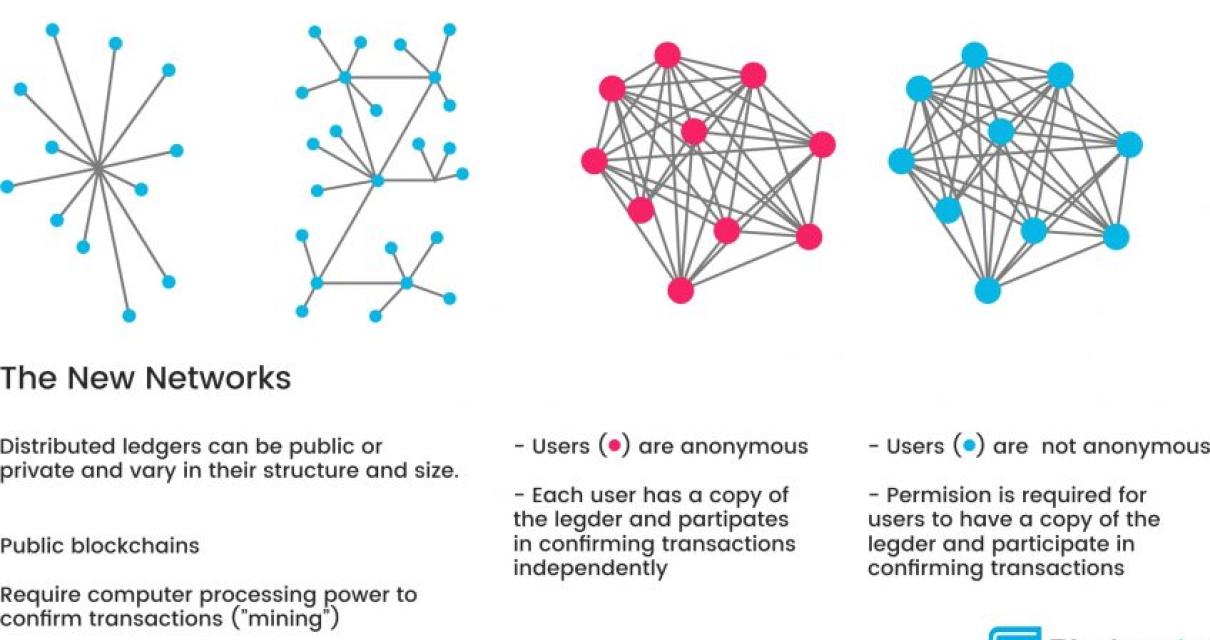What is a private blockchain?
A private blockchain is a blockchain that is not open to the public. Instead, it is used by a limited number of people or organizations. This makes it more secure and efficient than a public blockchain, which is open to everyone.
How do private blockchains work?
Private blockchains are similar to public blockchains in that they allow for transactions between users. However, private blockchains are not publicly accessible, meaning that only those who are authorized to access the blockchain can make transactions. Private blockchains are often used for transactions between companies or between individuals and companies.
The benefits of private blockchains
Private blockchains are a more secure and private way of managing transactions and storing data. This is because they are not publicly accessible, meaning that only those who know the secret code can access the data. This means that private blockchains are less likely to be tampered with or hacked, making them an ideal way to store sensitive data.
Another benefit of private blockchains is that they can be more efficient than public blockchains. This is because private blockchains are only used by a limited number of people, meaning that there is less competition between participants and transactions can be processed faster.
Finally, private blockchains can be more efficient when it comes to tracking transactions. This is because private blockchains do not need to keep track of every single transaction, meaning that they can focus more on tracking the data that is important to them.
The difference between public and private blockchains
A public blockchain is one where anyone can view the transactions that have happened on the network. This makes it a transparent system, meaning that everyone can see who owns what and can track the history of transactions.
A private blockchain is one where only a limited number of people (usually known as “owners”) can view the transactions that have happened on the network. This makes it a private system, meaning that only the owners can track the history of transactions and access specific information about the network.

How to create a private blockchain
There is no one-size-fits-all answer to this question, as the best way to create a private blockchain will vary depending on the specific needs of the project. However, some tips on how to create a private blockchain include creating a decentralized network of nodes, using a cryptography-based security system, and implementing a consensus algorithm.
The advantages of private blockchains over public ones
Private blockchains offer many advantages over public ones. These advantages include:
1. Increased security: Private blockchains are more secure because they are not publicly accessible and are maintained by a small group of trusted participants.
2. Increased privacy: Private blockchains can maintain greater privacy than public blockchains because only approved participants can access them.
3. Reduced costs: Private blockchains are cheaper to operate than public blockchains because they do not require a large number of participants or a centralized authority to operate.
4. Improved speed: Private blockchains can processes transactions more quickly than public blockchains because they are not subject to the delays caused by network congestion and the need to wait for consensus from a large number of participants.
5. Greater flexibility: Private blockchains are more flexible than public blockchains because they can be amended or updated more easily. This allows them to better meet the needs of specific applications or markets.
What is the purpose of a private blockchain?
A private blockchain is a distributed database that allows for secure, transparent and tamper-resistant transactions. It can be used to create a Distributed Autonomous Organization (DAO), which is a type of business entity that uses smart contracts to manage its own transactions and operations.

How can private blockchains be used?
Private blockchains can be used to create tamper-proof records of transactions. They can also be used to create a decentralised marketplace.
What are the benefits of using a private blockchain?
Private blockchains offer a number of potential benefits that can be valuable for businesses. These include:
1. Increased security: Private blockchains are more secure than public blockchains because they are not open to the public. This makes them ideal for businesses that need to keep sensitive information confidential.
2. Reduced costs: Private blockchains are typically cheaper to operate than public blockchains because they do not require a large number of participants to operate. This makes them a good option for businesses that need to save money on costs related to blockchain technology.
3. Increased flexibility: Private blockchains can be customized to meet the specific needs of a business. This allows businesses to easily create their own blockchain applications without having to rely on third-party providers.
4. Greater transparency: Private blockchains are more transparent than public blockchains because they are accessible only by authorized participants. This makes it easier for businesses to track the movements of assets and data within the blockchain system.
Why would someone want to use a private blockchain?
Private blockchains are used for a variety of reasons, but some of the most common reasons include:
1. Regulatory compliance: Private blockchains can help organizations to comply with regulations that are specific to their industry. For example, a bank might use a private blockchain to track the movement of money across borders.
2. Secure data: Private blockchains can help to protect sensitive data by ensuring that it is not accessible by unauthorized individuals.
3. Customizable: Private blockchains can be customized to meet the needs of specific organizations. For example, a pharmaceutical company might use a private blockchain to track the movement of drugs across the supply chain.
4. scalability: Private blockchains can be more scalable than public blockchains, which means that they can handle more transactions.

What are some of the advantages of having a private blockchain?
Private blockchains offer a number of advantages over public blockchains. These advantages include:
1. Private blockchains are more secure. Because they are not publicly accessible, private blockchains are much more secure than public blockchains. This is because private blockchains are not subject to the same level of cyberattack as public blockchains.
2. Private blockchains are more tamper-proof. Because private blockchains are not publicly accessible, they are much more tamper-proof than public blockchains. This is because it is much more difficult for someone else to tamper with a private blockchain than it is to tamper with a public blockchain.
3. Private blockchains are more user-friendly. Because private blockchains are not publicly accessible, they are easier to use than public blockchains. This is because private blockchains do not require users to learn a new set of rules or to use a different type of computer software to operate them.
4. Private blockchains are more transparent. Because private blockchains are not publicly accessible, they are much more transparent than public blockchains. This is because private blockchains can easily be accessed by anyone who wants to view them, whereas public blockchains are typically only accessible by those who are authorized to access them.
5. Private blockchains are more efficient. Because private blockchains are not publicly accessible, they are more efficient than public blockchains. This is because private blockchains can operate in a decentralized fashion, which allows them to efficiently process transactions without the need for a centralized authority.